How (Not) To Practice Music Efficiently, Part One
My “How (Not) To” Hubs are, I hope, fun. But admittedly, my qualifications to write them do vary a bit from topic to topic. As far as the present Hub goes, though, I’m truly an expert, with extensive experience of just about every way NOT to practice music efficiently! So read on with confidence. . .
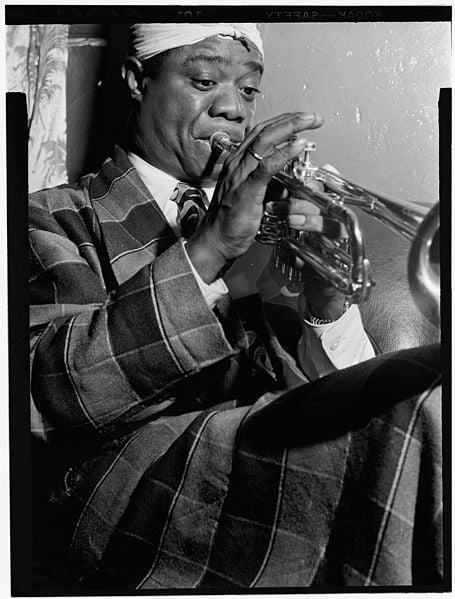
It turns out that very often you can accurately describe how NOT to practice in terms of veering too far toward some sort of extreme or another. In these instances, efficient practice means holding to the middle way. For example, take this (imaginary) pair of advisory statements:
1) Always persist
2) Don’t persist in your mistakes
But if you always persist, aren’t you bound to persist even in your mistakes? If so, these adages are contradictory. Some might see it just the opposite way, assuming that “Always persist” really means “Always persist in improving your performance.” In that case, the second statement is not needed.
I see these statements as defining opposite ends of a spectrum—extremes, in other words, to be avoided. “Always persist” sounds like good advice, and it’s true than persistence is an enabling virtue, without which not much good will come. But it’s also true that there are times to “hang it up” for a time; times to step back and check that we’re on the right track before we do more damage. Sometimes the judicious refusal to persist is the best decision we can make.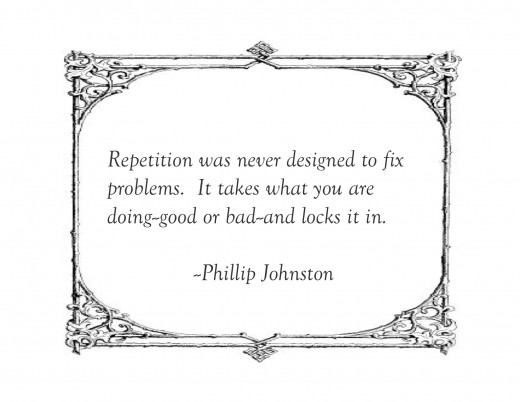

At the other end of the spectrum, “Don’t persist in your mistakes” is good advice, too. Mistakes repeated are mistakes reinforced, and sometimes the only way to avoid repeating mistakes is to understand them thoroughly—something that may require a step backward, or at least a momentary pause for thought. But it’s possible to step away too soon—to step away before we’ve really engaged our mistakes.
This may sound abstract, or perhaps too obvious, but it’s a very real thing. For example, when did you last avoid a difficult conversation because you thought it might be a difficult one? Most of us will do that sometimes--but when we do, we cut ourselves off from lessons that may be vitally important.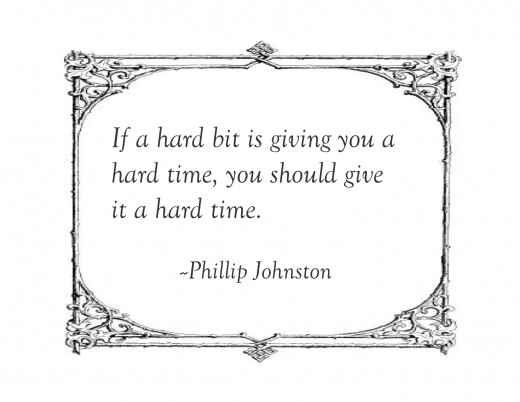
So for a musical example, if bar 37 is causing trouble, it’s definitely a mistake to pound away mindlessly, playing bar 37 wrongly over and over. On the other hand, simply walking away muttering “Well, it’s just too hard; I’ll pick another piece,” is unlikely to advance our skills much, either. Working on it slowly and carefully for a reasonable amount of time, then putting it away to return to later is usually best.
That’s an example of efficient practice technique in the mental realm—something affecting our attitude. But music performance is intensely physical. What about practice advice that affects the physical side of things?
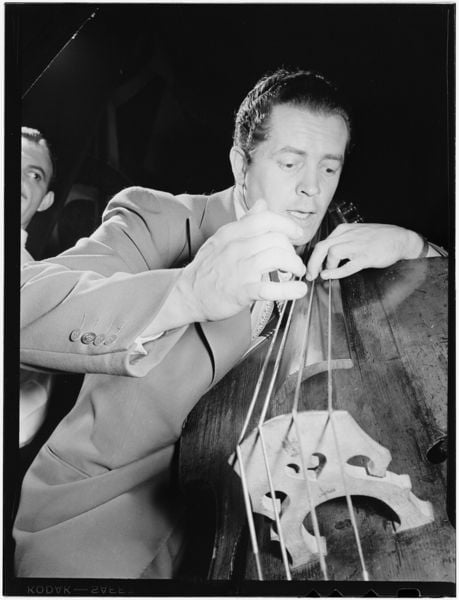
Well, how about these practice hints?
1) Put comfort above all—your body will tell you how to be efficient.
2) Don’t pay attention to your body; playing is tough!
These hints are enough to make an earnest reader of advice crazy! But again, put them on a spectrum and find the middle way. It’s true that your bodily sensations exist (in part) to keep you from injuring yourself, which makes following tip number two to its logical conclusion NOT such good advice.
(And by the way, it’s underappreciated just how often musicians do injure themselves from playing; Repetitive Stress Injuries are quite common. For example, surveys of symphony musicians have found from 64% to 76% have had their performance affected by RSIs.)
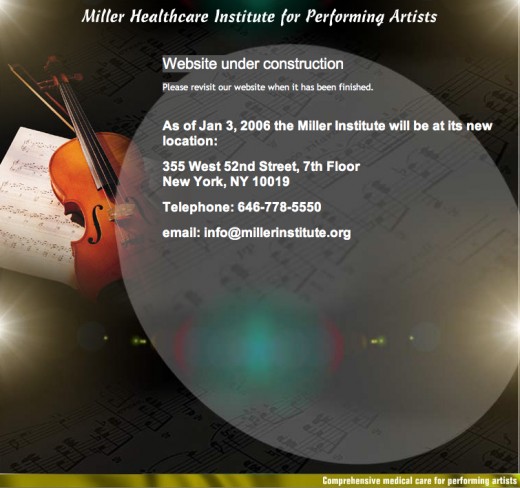
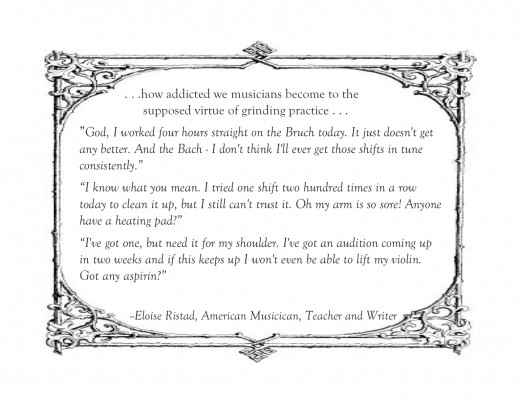
But it’s not true that the wisdom of the body is a sufficient guide; if it were, there would be no such thing as a music teacher specializing in performance!
The reason is simple: the familiar almost always feels comfortable, and when you begin playing or singing your body does not have a “template” for efficiency in that activity. It all feels awkward at first--for most of us, at least. So the first change that gives a little improvement will tend to be seized on, regardless of whether it really is the most efficient technique in the long run.
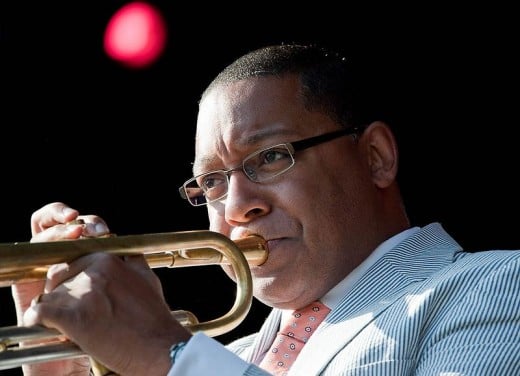
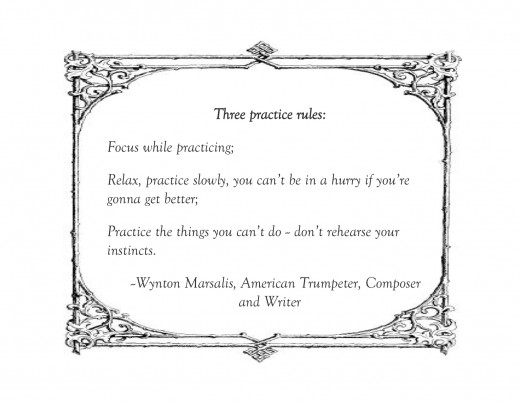
The process of falling into a "dead end" technique--one that helped at first but ultimately hurt--is one that happened to me as a trumpet player: by age 12, I was thoroughly accustomed to an inefficient embouchure. The consequences are still playing out for me 40 years later, even though I’ve long since changed my embouchure to a more workable “set.” And the teacher most responsible for helping me with that change pointed up the part of the problem we’re talking about here.
“What would you tell a beginning student about embouchure?” he asked me. I mumbled something about a “comfortable” placement of the mouthpiece on the lips. “I knew it!” he crowed. “Don’t say that—guide them to a placement that you as teacher know will work for them—they will quickly accustom to it and soon enough it will be the ‘comfortable’ embouchure.”
So the trick is not to ignore bodily cues, such as aches and pains, or feelings of tension—and also not to ignore logic, or the accumulated wisdom of the playing community, when trying to figure out just how to respond to those cues.
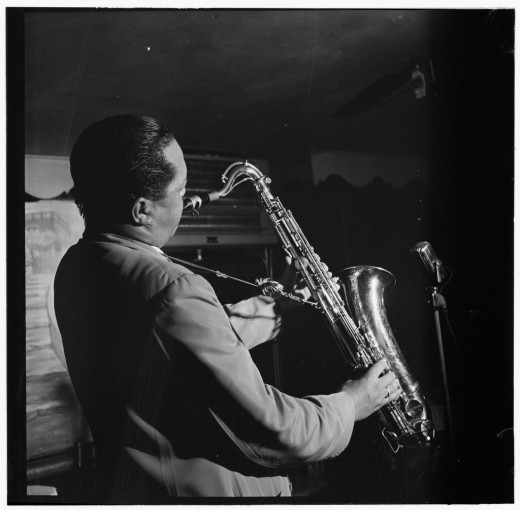
Let’s wrap up Part One with a pair of statements that affect both mind and body.
1) Always try your hardest!
2) Don’t try—just let it flow.
The middle way recognizes on the one hand that playing can sometimes require serious physical and mental effort. A trumpet player performing a screaming altissimo solo above a full throttle big band is using a lot of energy. So is a Wagnerian opera singer at the height of a big solo passage.
A little different, but no less significant, is the effort required of a Classical guitarist trying to project every nuance to the back of a five hundred-seat hall, or of a percussionist focusing on the intricate rhythms and involved physical movements of a Stockhausen solo percussion piece.

But though the efforts involved may need to be extreme, over-exertion will always degrade the performance as a result of tension, loss of synchronization or lessening of muscular control.
My favorite example is that of a male gymnast trying to learn to lift himself from a headstand into a handstand—an action physically equivalent to lifting a weight equal to one’s own body weight overhead. The gymnast can do the overhead lift, with some extra weight to spare, yet consistently fails in performing the actual trick. How can this be?
The answer (you guessed it) is over-exertion. When we over-exert, our brains activate not just the “right” muscle groups, but also irrelevant or even counter-productive ones, too.
Thus, the gymnast, trying to “give 110%,” was in fact literally working against himself by activating muscles that worked in opposition to the ones he really needed to use. He needed to relax, to try less, and let the effort “flow” into precisely the right muscles—and no others.
I don’t know if he succeeded; I know from my own experience that over-exertion can be a tough trap to escape. But I know, too, that success is possible.
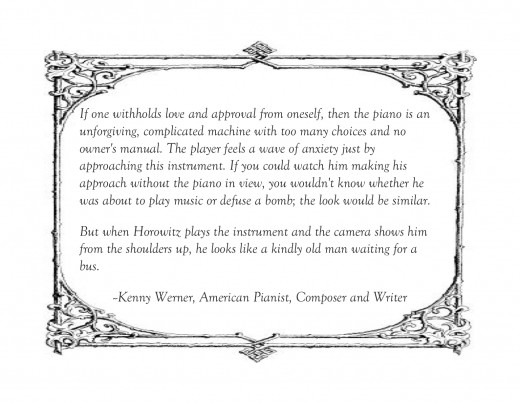
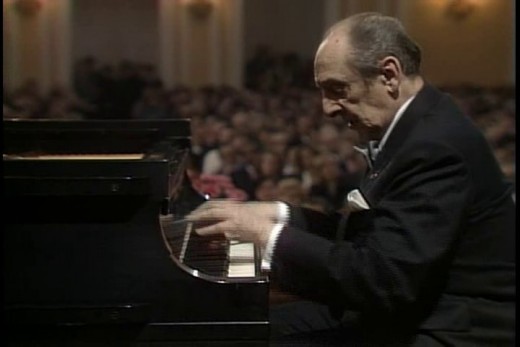
So, that's it for Part One. We've looked at some contradictory advice, some of it surprisingly common, and suggested that usually 'the middle way' will be best. We've sampled the thoughts of some outstanding teachers and performers.
And we've set the stage for even more practical hints in Part Two. There we'll consider some more examples where the 'middle way' can help us, and look at some nitty-gritty issues and strategies for better practice!
Books by Johnston, Ristad and Werner
Other Hubs by Doc Show
- How (not) to string a guitar
The basics for stringing a steel-string acoustic. "It amazes me that people are willing to pay others $15 to string their guitars for them. If you play, why not do it yourself? It's mostly not that hard..." - How (not) to work sudoku
Tips and practice exercises to improve your Sudoku skills. "Let's cut to the chase: the way not to work a sudoku puzzle is to wander randomly through the grid, vainly trying to spot something, anything, that looks as if it might help..." - Through A Glass Darkly: Equinox Reflections, 2010
2010 saw a whole lot of sea ice melt--probably the lowest volume ever. Some thoughts on what it meant and how it felt. "Its just past the fall equinox, that day when the year turns from light to dark, summer to winter..." - Global Warming Science, Press, And Storms
The story of Nils Ekholm, self-made scientist, media whiz and (nearly) Arctic explorer. "Scientists are expected to live and die on the quality and integrity of their data analysisbut usually that is a metaphor..."






